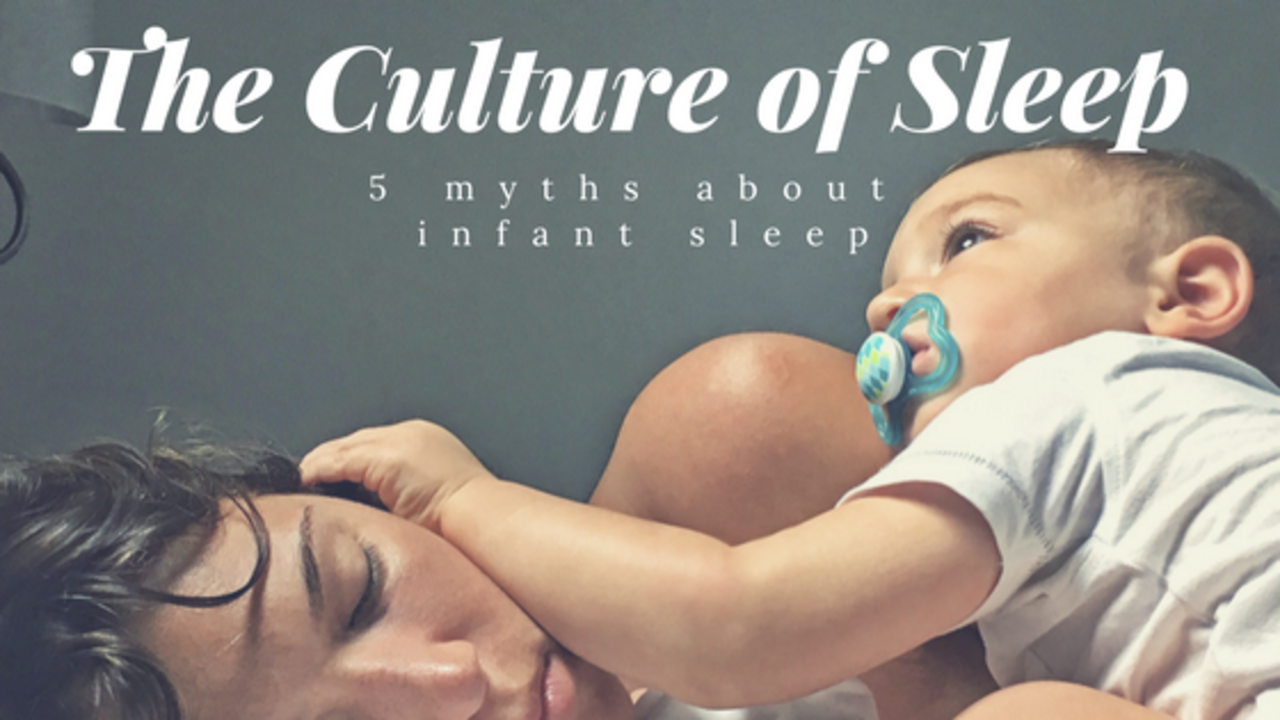The Culture of Sleep: Myth #1- 12 Hour Nights
Feb 20, 2018
Though sleep is a biological process, most of how and when you sleep is determined by the culture you live in. Culture determines how much you value sleep, who sleeps with whom, when you go to bed, and when your day starts. In America, there are many ideas about how infants and toddlers should sleep. Most parents think these ideas come from biological science, when, actually, the most pervasive beliefs about infant and toddler sleep are only cultural constructs.
These cultural ideas often don't match up with children’s biological needs or with parental beliefs, and they leave parents feeling lost and helpless. Over the next five weeks, I’m going to debunk the top cultural beliefs that cause problems when parents are trying to create healthy sleep for their infants and toddlers.
Here goes…
Myth #1: 12-Hour Nights
One of the most pervasive myths we have about infants is that new babies can and should sleep through the night. "Is your baby sleeping through the night?" is a question new parents get so often that many end up lying in response to avoid the unsolicited advice that almost inevitably follows a “no.” What does it even mean, to sleep through the night? Well, the most prevalent answer is that it means to sleep for 12 uninterrupted hours. This idea is taught and discussed in many forms, including parenting articles, books, and family lore. There are even books with this myth as part of the title. I’m not sure where this myth came from or how it started, because there’s no evidence to back up the idea that it’s either generally possible or even healthy for young babies to sleep this long.
What is “Through the Night?”
The problem with that question is that it varies based on a child's age and weight. It also depends on how you define through the night. In the realm of clinical sleep research, though the night is defined as 5-7 hours of uninterrupted sleep. For most parents, sleeping through the night means sleeping from bedtime until morning time without needing any help. In my work with families I have seen a parent feel their child is sleeping through the night, even if there are night wakes to eat. But since baby goes right back to sleep, they don't really count it as a wake-up. On the other hand, some parents count going in to replace a pacifier as a wake-up.
Sleep Development
The developmental process for sleep is what is called sleep consolidation. Sleep consolidation is the combining of sleeping times and waking time. The normal timeline for this developmental process is 24 months. A newborn sleeps every hour or so for about an hour, all day and night, while most 2-year-olds have one 1–2 hour nap and then sleep 8–10 hours at night. By two years, children's sleep time has consolidated to mostly at night, while the wake times have all moved to the day. This is a developmental process, just like learning to walk. Some children will walk sooner, others later. The same is true with sleep consolidation. Some children will do more night sleep sooner, while others will take longer to group their waking periods and sleeping periods. This means there is a range of age in which children will start sleeping without interruption. What is the range? The not very helpful answer is 6–36 months.
How Long a Baby Can Sleep
The total average amount of sleep in 24 hours for infants over 6 months of age is 11–13 hours. This has been shown again and again in research both in the United States and cross-culturally. If the total amount of sleep for most children who are still napping is 11–13 hours, it is physically impossible for them to sleep 12 hours at night. Most infants and children average about 8–10 hours of night sleep. The exact amount an infant or young child will sleep at night will depend on if they lean toward the lower or higher end of the average and how much they are sleeping during the day. For example, a 7-month-old infant who wants 12 hours of total sleep and sleeps 3 hours during the day will sleep 9 hours at night, but that baby probably won't sleep 9 hours straight.
Most infants still need to nurse or eat at least once during the night. How long a baby can sleep uninterrupted before they need to wake depends on age, weight, and how much they eat during the day.
So, if your baby doesn't sleep 12 hours at night, they are perfectly normal. If your baby does stay in bed for 12 hours, remember that all babies are different. Some do want more-than-average amounts of sleep.
Stay connected with news and updates!
Join our mailing list to receive the latest news and updates from our team.
Don't worry, your information will not be shared.
We hate SPAM. We will never sell your information, for any reason.


